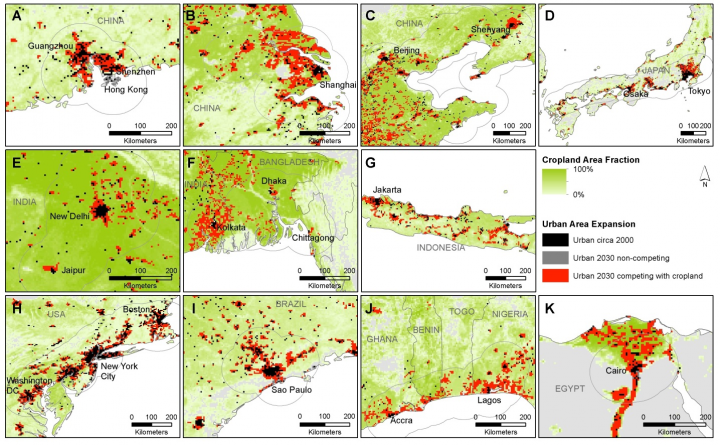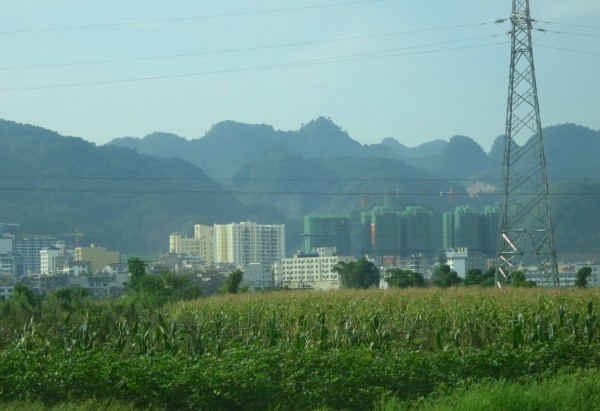Urban Expansion to Claim Nearly 300,000 km2 of Fertile Cropland Worldwide
Urban Expansion to Claim Nearly 300,000 km2 of Fertile Cropland Worldwide
UMD contributes to global study on urbanization’s effects on food production.
Associate Professor Giovanni Baiocchi from the Department of Geographical Sciencescontributed to the study led by the Mercator Research Institute on Global Commons and Climate Change (MCC) located in Berlin.
A team of researchers from institutions around the world, including the University of Maryland, reveal that expanding urban areas will swallow up nearly 300,000 square kilometers of fertile cropland by the year 2030, adding pressure to an already strained global food system. Researchers estimate the area of land that stands to be lost through urbanization—nearly twice the size of Florida—could produce enough food to provide 300 million people with 2,500 calories a day for an entire year.
“We are witnessing an unprecedented transition from predominantly rural to urban lifestyles,” Baiocchi said. “Rapid and unplanned urban growth is further threatening sustainable development. As rapidly urbanizing regions of the Global South are increasing their dependence on food imports, millions of people in poverty are becoming more vulnerable to world food market volatility potentially exacerbating the problem of global income inequality.”
Results from the study entitled “Future urban land expansion and implications for global croplands” were recently published in the Proceedings of the National Academy of Sciences of the United States of America(PNAS). According to the study, global urbanization will take place on agricultural land that is almost twice as fertile as the world average and the effects will be particularly severe in parts of Asia and Africa.
The scientists used spatially explicit urban area expansion projections developed by Yale University to conduct their research. They then combined these with land-use data from the University of Minnesota and the University of British Columbia on global croplands and crop yields. The MCC study examined the total loss of croplands worldwide. To determine the productivity of that land, the researchers used the aggregated production of the 16 most important food crops, including maize, rice, soybeans, and wheat.
Researchers estimate China alone will have to bear one-fourth of total global cropland loss, amounting to nearly 80,000 km2. Meanwhile, the challenge to African countries already greatly impacted by hunger and food shortages—such as Nigeria, Burundi and Rwanda—is compounded by two factors: the distinct vulnerability of many African countries to the effects of climate change, and the comparatively greater difficulties encountered by the unemployed rural population to gain a foothold in the urban labor markets. The study finds that urbanization in Egypt is also particularly pronounced and that by 2030, the country could lose about one third of its cropland.
“Policy-makers at the municipal level are now called on to take action. Their time has come, since urban planning is now part and parcel of world policy,” said Felix Creutzig, one of the study’s lead authors and head of the MCC Working Group on Land Use, Infrastructure and Transport. “Urban planners can contribute to preventing small farmers from losing their livelihoods. Spatially efficient urbanization could help to retain the existing agricultural system while continuing to provide small farmers with access to the urban food market.”

Competition between croplands and urban expansion in regions with the highest urbanization rate
Published on Thu, 01/05/2017 - 12:14


